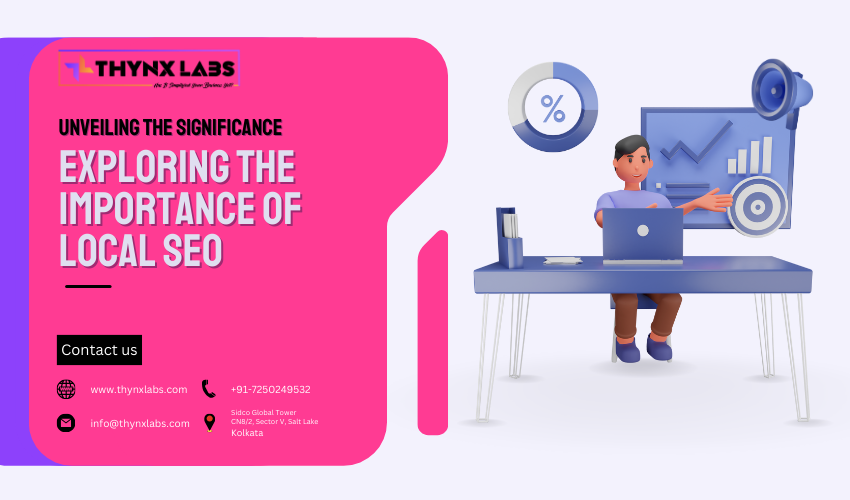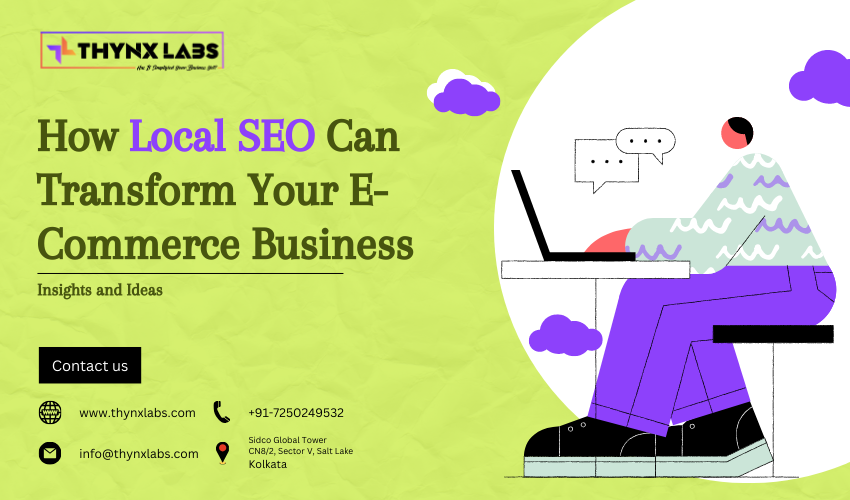Common Mistakes to Avoid in Local SEO Strategies
Local SEO (Search Engine Optimization) is a powerful tool for businesses aiming to attract customers in their specific geographic area. However, even the most well-intentioned efforts can fall short if common mistakes are made. To ensure your local SEO strategies are effective, it’s crucial to be aware of these mistakes and avoid them at all costs.
1. Ignoring Google My Business (GMB)
Google My Business is the cornerstone of local SEO. Neglecting to claim, verify, and optimize your GMB listing is a significant mistake. Fill out all the information accurately, including business name, address, phone number, business hours, categories, and high-quality photos. Regularly update your GMB profile to keep it current and engaging for potential customers.
2. Inconsistent NAP Information
NAP (Name, Address, Phone Number) consistency across online platforms is vital for local SEO. Any inconsistency in your business information, even a slight variation in your business name or phone number, can confuse search engines and harm your local search ranking. Ensure that your NAP details are consistent across your website, social media profiles, online directories, and other platforms.
3. Neglecting Online Reviews
Online reviews play a significant role in building trust and credibility. Ignoring or mishandling customer reviews is a common mistake. Encourage satisfied customers to leave positive reviews and promptly address negative ones. Engage with reviewers professionally, demonstrating your commitment to customer satisfaction. Avoid fake reviews or incentivizing customers for positive feedback, as these practices can damage your reputation.
4. Ignoring Mobile Users
With the increasing use of smartphones, mobile optimization is non-negotiable. A website that isn’t mobile-friendly provides a poor user experience, leading to high bounce rates and lower search rankings. Ensure your website is responsive and offers a seamless experience across all devices, especially mobile phones and tablets.
5. Keyword Stuffing
Stuffing your website content, including titles, headings, and descriptions, with excessive keywords in an attempt to manipulate search engines is a detrimental practice. Keyword stuffing not only results in poor readability but also violates search engine guidelines. Focus on creating high-quality, informative content that naturally incorporates relevant keywords. Quality content that provides value to users is key.
6. Ignoring Local Structured Data Markup
Structured data markup, also known as schema markup, helps search engines understand your content better, making it easier for them to display relevant information in search results. Many businesses overlook implementing local structured data, missing the opportunity to enhance their visibility in local searches. Implement structured data markup to provide search engines with detailed information about your business, such as address, phone number, business hours, and customer reviews.
7. Slow Website Speed
Website speed is a critical factor for both user experience and search engine rankings. Slow-loading websites frustrate visitors and lead to high bounce rates. Search engines favor fast-loading websites because they provide a better user experience. Compress images, optimize code, and invest in reliable hosting to improve your website’s loading speed.
8. Neglecting Social Media Presence
Social media signals are taken into account by search engines when determining local search rankings. Ignoring social media or having an inactive presence on platforms relevant to your business is a mistake. Engage with your audience on social media, share relevant content, and encourage interactions. Active social media participation enhances your online visibility and local SEO efforts.
Conclusion
Avoiding these common mistakes is essential for the success of your local SEO strategies. By claiming and optimizing your Google My Business listing, maintaining consistent NAP information, managing online reviews, prioritizing mobile users, avoiding keyword stuffing, implementing local structured data markup, ensuring fast website speed, and actively participating in social media, you can significantly enhance your local search visibility and attract more customers to your business. Stay updated with the latest SEO best practices to maintain a competitive edge in the digital landscape.
Frequently Asked Questions (FAQs)
Q1: How frequently should I update my Google My Business listing?
A: Regular updates are essential. Ensure your business hours, services, and other relevant information are up-to-date. Regularly post updates and promotions to engage with your audience and keep your listing fresh.
Q2: Are online reviews really that important for local SEO?
A: Yes, online reviews are crucial for local SEO. Positive reviews build trust and credibility, influencing potential customers' decisions. Engage with reviewers and address their feedback promptly and professionally.
Q3: Can I handle local SEO on my own, or should I hire a professional?
A: It depends on your expertise and available time. While basic local SEO tasks can be managed independently, hiring a professional or an agency can provide in-depth knowledge, expertise, and time-saving solutions, ensuring effective and efficient local SEO strategies.
Q4: How can I check my website's loading speed?
A: There are various online tools, such as Google PageSpeed Insights and GTmetrix, that allow you to check your website's loading speed. These tools provide insights and suggestions for improving your website's performance.
Q5: Is it necessary to be active on all social media platforms?
A: It's not necessary to be active on every platform. Focus on the social media platforms where your target audience is most active. Quality engagement on a few platforms is more effective than a scattered presence on multiple platforms.


